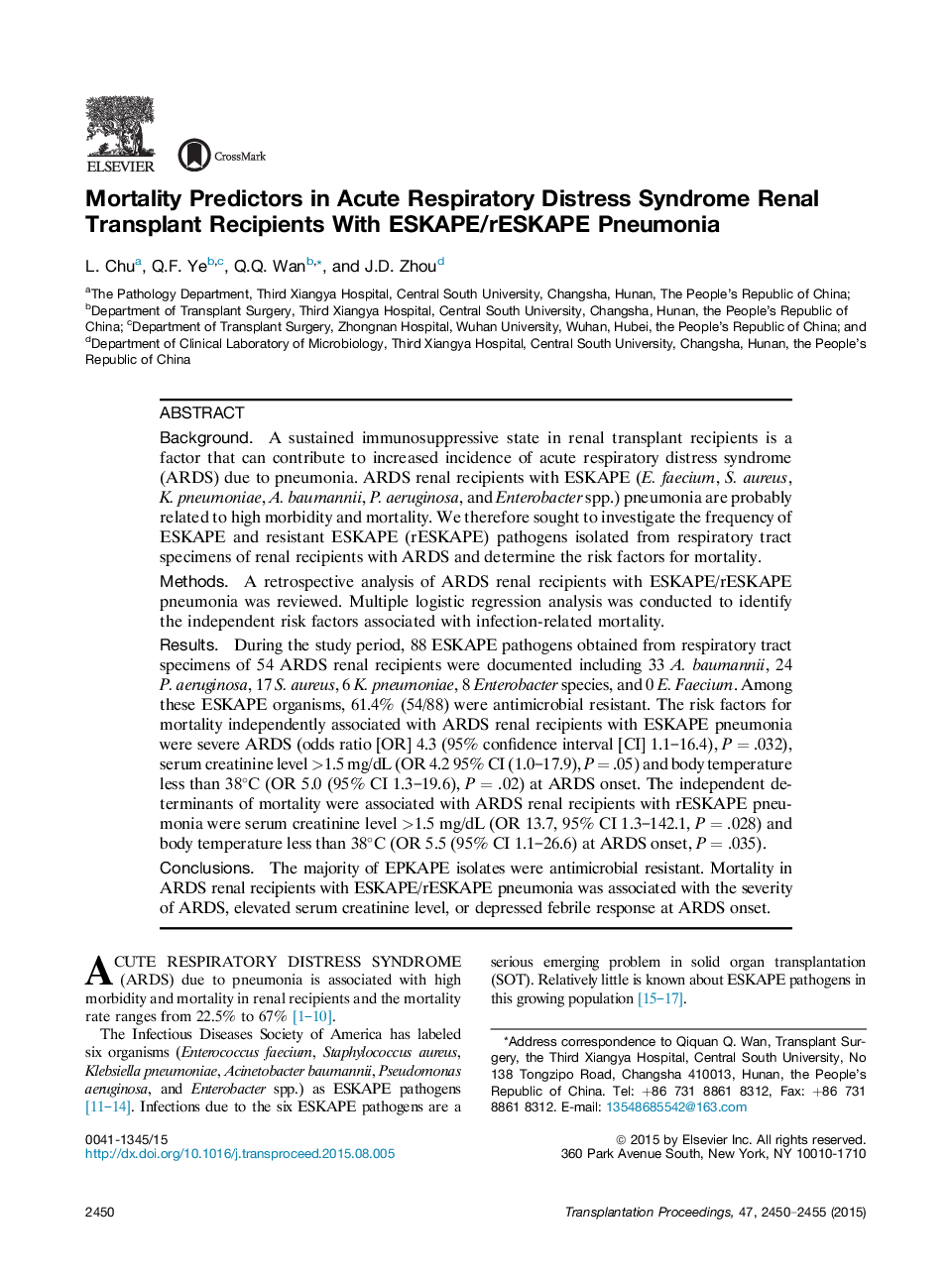| Article ID | Journal | Published Year | Pages | File Type |
|---|---|---|---|---|
| 4257021 | Transplantation Proceedings | 2015 | 6 Pages |
BackgroundA sustained immunosuppressive state in renal transplant recipients is a factor that can contribute to increased incidence of acute respiratory distress syndrome (ARDS) due to pneumonia. ARDS renal recipients with ESKAPE (E. faecium, S. aureus, K. pneumoniae, A. baumannii, P. aeruginosa, and Enterobacter spp.) pneumonia are probably related to high morbidity and mortality. We therefore sought to investigate the frequency of ESKAPE and resistant ESKAPE (rESKAPE) pathogens isolated from respiratory tract specimens of renal recipients with ARDS and determine the risk factors for mortality.MethodsA retrospective analysis of ARDS renal recipients with ESKAPE/rESKAPE pneumonia was reviewed. Multiple logistic regression analysis was conducted to identify the independent risk factors associated with infection-related mortality.ResultsDuring the study period, 88 ESKAPE pathogens obtained from respiratory tract specimens of 54 ARDS renal recipients were documented including 33 A. baumannii, 24 P. aeruginosa, 17 S. aureus, 6 K. pneumoniae, 8 Enterobacter species, and 0 E. Faecium. Among these ESKAPE organisms, 61.4% (54/88) were antimicrobial resistant. The risk factors for mortality independently associated with ARDS renal recipients with ESKAPE pneumonia were severe ARDS (odds ratio [OR] 4.3 (95% confidence interval [CI] 1.1–16.4), P = .032), serum creatinine level >1.5 mg/dL (OR 4.2 95% CI (1.0–17.9), P = .05) and body temperature less than 38°C (OR 5.0 (95% CI 1.3–19.6), P = .02) at ARDS onset. The independent determinants of mortality were associated with ARDS renal recipients with rESKAPE pneumonia were serum creatinine level >1.5 mg/dL (OR 13.7, 95% CI 1.3–142.1, P = .028) and body temperature less than 38°C (OR 5.5 (95% CI 1.1–26.6) at ARDS onset, P = .035).ConclusionsThe majority of EPKAPE isolates were antimicrobial resistant. Mortality in ARDS renal recipients with ESKAPE/rESKAPE pneumonia was associated with the severity of ARDS, elevated serum creatinine level, or depressed febrile response at ARDS onset.
